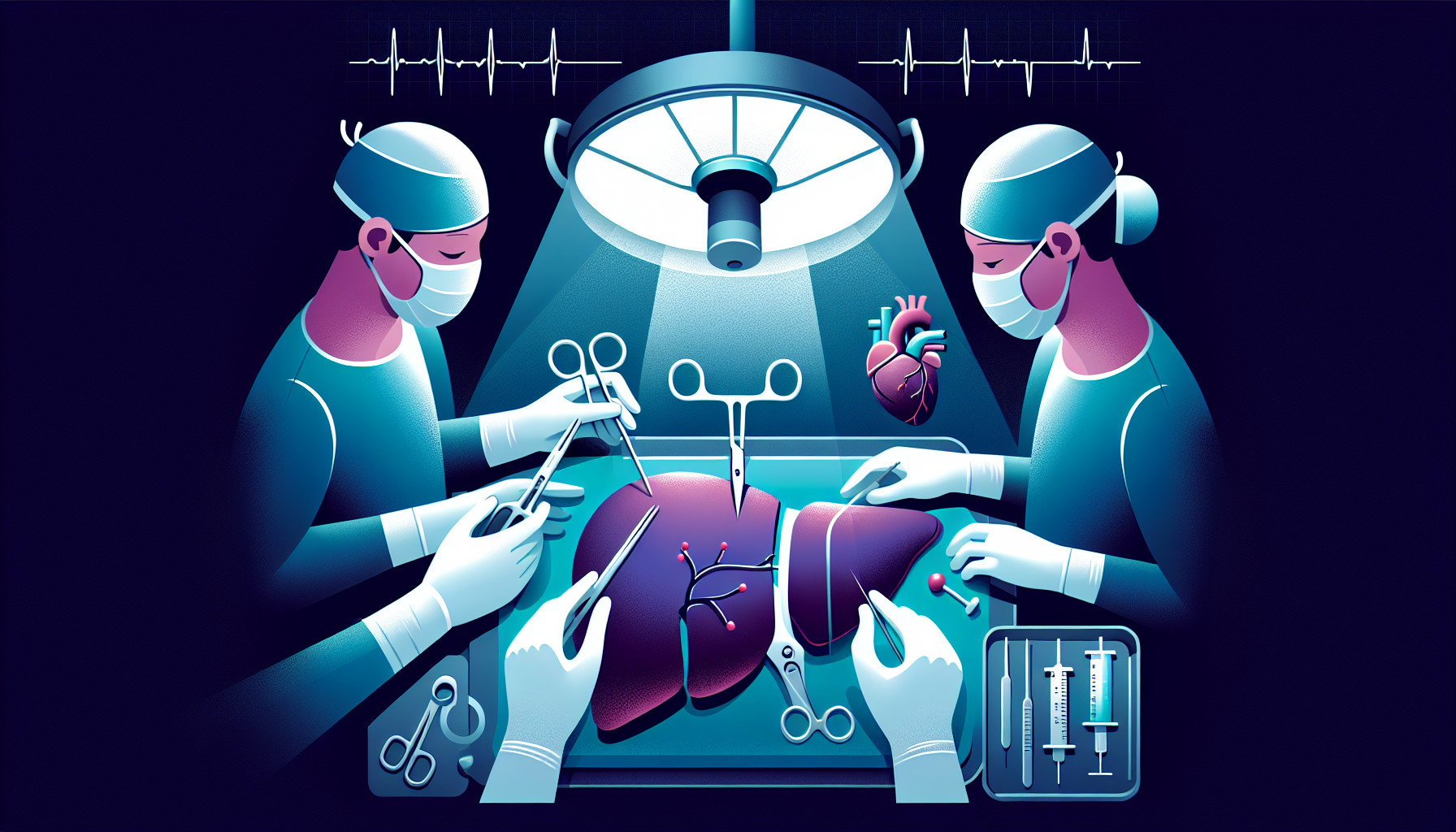Our Summary
This study aims to explain how advanced medical data can be used to improve the care of liver transplant patients. The ’transplant-ome’ refers to all the biological information related to organ transplantation, including genes, proteins, and metabolic processes. Recent research has shown that these elements can predict potential complications and guide new treatment methods. It’s important to note that both the donor organ and the recipient can influence these elements, and certain interventions (like maintaining normal body temperature during the transplant) can affect them as well. With the help of new technology, we can now track these elements in real time and noninvasively. This can help doctors understand how these elements interact and change during the transplant process, which could lead to better management of patient care. In a nutshell, this research highlights the potential of using detailed biological data to personalize and enhance the care of liver transplant patients.
FAQs
- What is the ’transplant-ome’ and how is it relevant to liver transplantation?
- How can tracking biological elements in real time improve the care of liver transplant patients?
- Can interventions during the transplant process affect the biological information related to organ transplantation?
Doctor’s Tip
One helpful tip a doctor might give a patient about liver transplant is to follow a strict medication regimen. This includes taking immunosuppressant medications as prescribed to prevent rejection of the new liver. Missing doses or not taking medications on time can increase the risk of complications and rejection. It’s important to work closely with your healthcare team to ensure you are taking the right medications and following the correct schedule.
Suitable For
Patients who are typically recommended for liver transplant are those with end-stage liver disease, liver cancer, and acute liver failure. These patients have irreversible liver damage and are not expected to survive without a transplant. In addition, patients who are not responding to other treatments for liver disease are also recommended for liver transplant. It is important for these patients to undergo a thorough evaluation by a transplant team to assess their overall health and suitability for the procedure.
Timeline
Before liver transplant:
- Patient undergoes evaluation to determine if they are a candidate for a liver transplant
- Patient is placed on a waiting list for a donor organ
- Patient may experience symptoms of liver failure, such as fatigue, jaundice, and abdominal pain
- Patient may undergo pre-transplant treatments to manage their condition and improve their chances of a successful transplant
After liver transplant:
- Patient undergoes surgery to receive the new liver
- Patient is closely monitored in the intensive care unit for any complications
- Patient begins taking immunosuppressant medications to prevent organ rejection
- Patient undergoes regular follow-up appointments to monitor their progress and adjust medications as needed
- Patient may experience side effects from medications or complications from the surgery
- Over time, patient’s liver function improves and they are able to resume normal activities with a healthier liver
What to Ask Your Doctor
- What is the success rate of liver transplants at this facility?
- What are the potential risks and complications associated with liver transplant surgery?
- How long is the typical recovery period after a liver transplant?
- What medications will I need to take after the transplant, and what are the potential side effects?
- How will my lifestyle need to change after the transplant?
- How often will I need to follow up with the transplant team after the surgery?
- Are there any specific dietary restrictions I need to follow after the transplant?
- How will my immune system be affected by the transplant, and what steps can I take to prevent infection?
- What are the signs that my body may be rejecting the new liver, and what should I do if I experience these symptoms?
- Are there any clinical trials or new treatments available that could benefit me as a liver transplant patient?
Reference
Authors: Scarpa J. Journal: Curr Opin Organ Transplant. 2023 Dec 1;28(6):412-418. doi: 10.1097/MOT.0000000000001100. Epub 2023 Sep 29. PMID: 37706301
